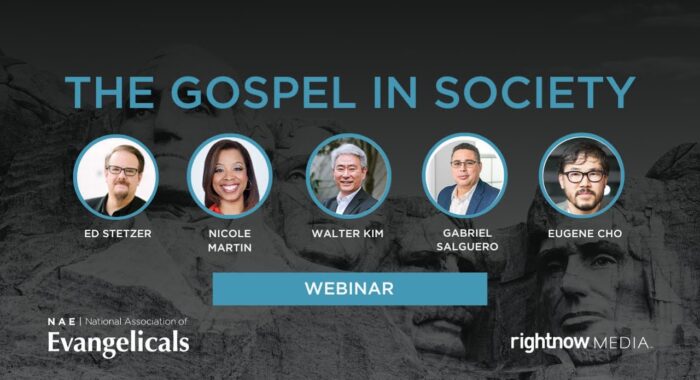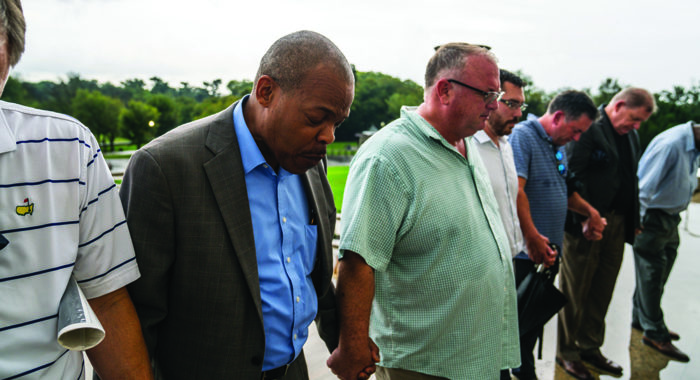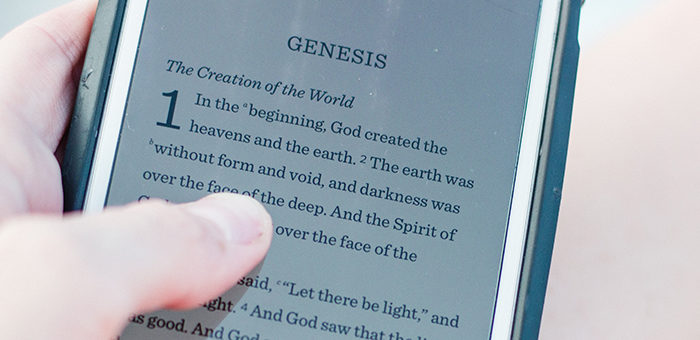At its 2019 Conference, the Evangelical Free Church of America revised its Statement of Faith to change the word “premillennial.” EFCA leaders Kevin Kompelien and Greg Strand share about the process, the significance of the change, and what other organizations and denominations can learn about changing theological statements.
Hosted by Leith Anderson, this podcast will help you understand:
- How the EFCA’s history with premillennialism influenced the decision;
- What resources and conversations were needed for pastors and churches to consider the change;
- Why some EFCA pastors didn’t want the Statement of Faith to change; and
- What recommendations EFCA leaders would offer to other groups considering a Statement of Faith change.
Read a Portion of the Transcript
Leith: Some people didn’t like this I assume, and they didn’t want the change to take place. Why didn’t they want it to be changed?
Greg: I think there were a couple things, Leith. One was there was a concern that this move is a denial of inerrancy or the authority of Scriptures. Many would equate a certain premillennial understanding — a certain read of the Scriptures — as hand-in-hand with affirming the doctrine of inerrancy. It’s what they had been taught. And at the end of the day, that is grounded in the notion of God and his character. That is to say that if God has made a promise, then it needs to be fulfilled.
That was one of the concerns that was raised and rightly so. Any time one is going to move away from the authority and narrative of the Scriptures, that is an issue of which we must be gravely concerned. The question is, “Does it?” And is that understanding the only way in which one can affirm the inerrancy and authority of the Scriptures? That is part of the discussion. This is where it’s also important to understand some of the larger history.
A second issue was if it didn’t deny inerrancy, it is at least a slippery slope toward the denial of inerrancy or the undermining of the authority of the Bible. Possibly, but it doesn’t necessarily equate one for one.
A third is this is a move away from our history. Certainly it was a move away from some of our history from the 1950s — the merger Statement of Faith between the Swedes, Norwegians and Danes. And we talked about that earlier. But if you looked at our longer history, it wasn’t necessarily a move away from our history.
The other concern was this was changing our distinctive. For many, this became one of the key issues of the Free Church — that this is our distinctive. And in fact, A. T. Olson would have said that in light of the establishing the nation of Israel, this is one of the key reasons that God has raised up the Free Church to be a harbinger of this eschatological view and the fulfillment of the biblical prophecy.
Well, part of that issue is: Was that our underlying, undergirding distinctive, or is our Free Church distinctive the fact that we will be unified around the central truths of the gospel? We’re not going to divide on some of the other issues through which in history there have been various views and understandings that are considered evangelical and orthodox. So for some, it may have changed our distinctive, at least some have read it that way.
The sense was that there is an undergirding distinctive in the Free Church, and in some ways it’s that we’re not so distinctive. We focus on the essentials on the gospel of Jesus Christ and that is reflective of who we are.
Share the Love
If you enjoyed the program, please rate it on iTunes and write a brief review. That will help get the word out and raise the visibility of the show.
Relevant Links/Resources
Kevin Kompelien was elected president of the Evangelical Free Church of America in 2015. For the previous nine years, he served as the international leader for the Africa division with ReachGlobal. Kompelien served over 20 years as pastor of two EFCA churches. In addition, he served on the North Central District Board chairing the church planting committee and on the Central California District Board (now EFCA West). Kompelien is a graduate of Trinity Evangelical Divinity School and was presented with an honorary Doctor of Divinity degree from Trinity International University in 2019.
Greg Strand has been executive director of theology and credentialing for the Evangelical Free Church of America since 2002. He also serves on the Board of Ministerial Standing and the Spiritual Heritage Committee. Strand has served in local church ministry in a variety of capacities including youth pastor, associate pastor of adult ministries and senior pastor. He holds two master’s degrees from Trinity Evangelical Divinity School, and is a Ph.D. candidate in systematic theology with Evangelical Theological faculty, Heverlee, Belgium.
Leith Anderson is president emeritus of the National Association of Evangelicals and pastor emeritus of Wooddale Church in Eden Prairie, Minnesota. He served as NAE president from 2007–2019, after twice serving as interim president. He served as senior pastor of Wooddale Church for 35 years before retiring in 2011. He has been published in many periodicals and has written over 20 books. Anderson has a Doctor of Ministry degree from Fuller Theological Seminary, and is a graduate of Moody Bible Institute, Bradley University and Denver Seminary.




 View All Podcasts
View All Podcasts 




























